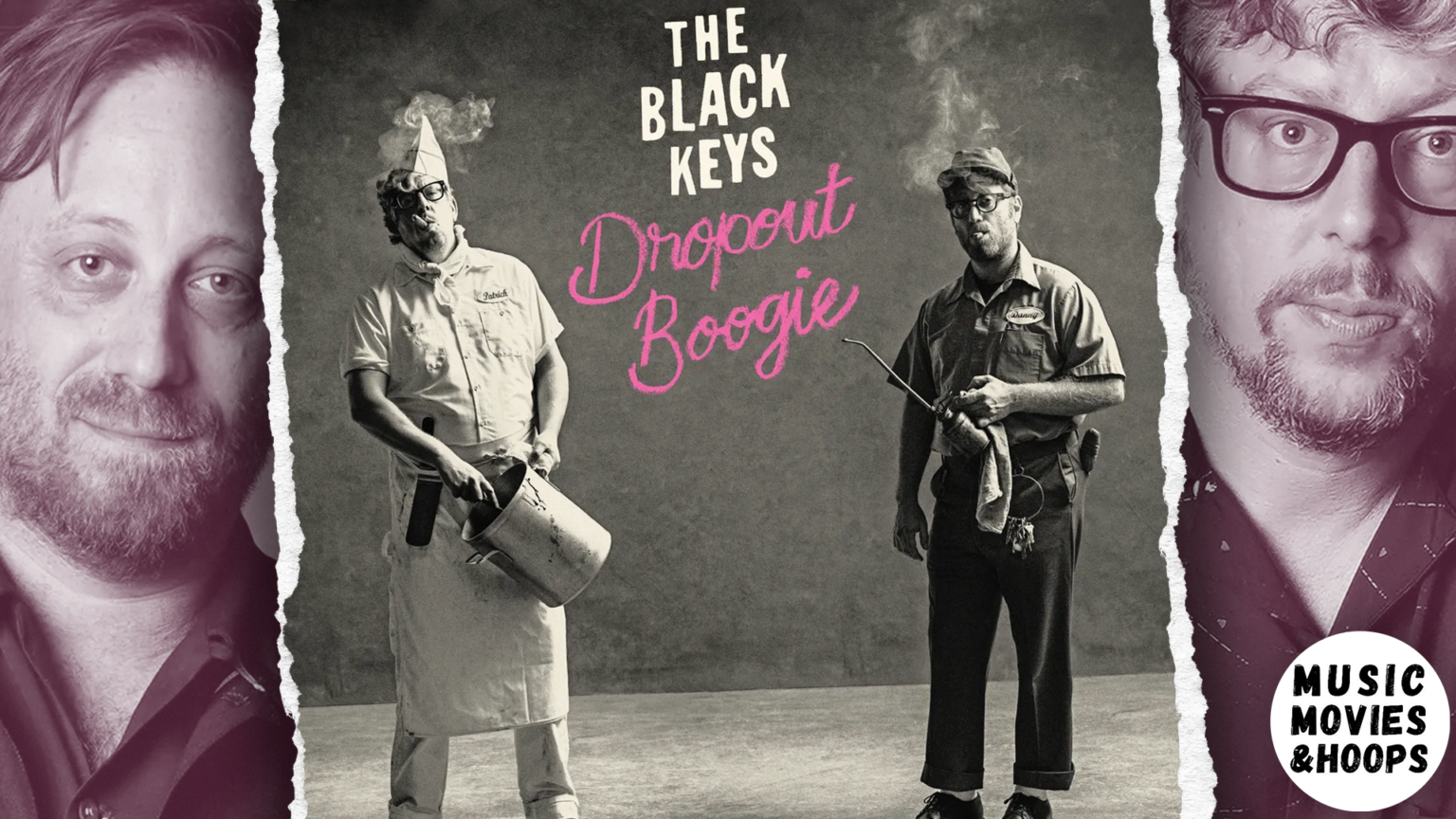I’ve never been the most die-hard Black Keys fan, but I’ve also never turned them off when they’ve come on the radio. In fact, during the 2010-11 renaissance with their back-to-back hit records Brothers and El Camino, I was including them in plenty of my playlists. I may have even performed “Tighten Up” as the second song on my high school Battle-of-the-Bands-winning setlist in 2013.
So, when I queued up their new record Dropout Boogie on release day this past Friday the 13th, I was curious how it would feel returning to their music after having lost pace with them for a few years. But the record was… exactly what I expected.
Dropout Boogie is classic Black Keys tone, drive, and melody. It’s unmistakable. There’s just enough dance-y r&b groove added to keep the lead single, “Wild Child,” fresh, but that’s about it.
Frankly, even though I will still gladly blast “Gold on the Ceiling” on a long summer drive, listening to this album makes me wonder why we haven’t collectively gotten bored with The Black Keys yet. Because we’re not – I enjoyed the record. I wasn’t bored by it, and I expect it to be at least moderately successful.
Some of my favorite artists – like Bon Iver or Childish Gambino – are known for upending their style on every record, and I often judge my least favorite artists – like AC/DC – on their “samey-ness.” So why do I like The Black Keys?
In the past I’ve told myself that I was more patient with their formula because I didn’t hear it as often as other modern pop structures, but when I went back and played Dropout Boogie up against their earlier records, I had to acknowledge that wasn’t the reason at all. It’s because their formula is tried and true – but it also isn’t theirs.
This isn’t (or shouldn’t be) news to anyone, but more than ever I am blown away by how blatantly they’re playing the same chord changes, lyrical themes, and guitar solos Black artists had been playing decades before they were born. In fact, other white rock bands were even appropriating those styles for years by the time The Black Keys were picking up instruments.
And they must know this. The Black Keys’ covered Richard Berry’s 1959 song “Have Love, Will Travel” all the way back in 2003, and they’ve written their own perfect re-hashings of it at least 5 times since. Of course, an uncritical eye would call this being “influenced” by earlier artists, but the recreation is too exact – try listening to “Your Touch” from Magic Potion.
And that’s the thing: formulaic doesn’t mean bad. When Coca-Cola tried launching “New Coke” in 1985 it was a disaster. When people want Coke, they want Coke Classic. And when I want to listen to rock n’ roll, I want to hear rock n’ roll. BUT, it is a failure of the music industry and our culture that when I think of artists garnering success with these songs, The Black Keys are the first that come to mind – they’ve won five Grammys for them.
Of course, they are far from the only examples (The Raconteurs and The Strokes come to mind), and are likely not even the most egregious perpetrators. Frankly, I don’t even blame the bands a lot of the time. If we are to enter a critical discussion of this issue as listeners, we have to acknowledge the complicity of audiences in continuing to be patrons of these kinds of appropriation.
It is unlikely that the majority of mainstream-successful white rock n’ roll bands write, record, and release music with an explicit mindset of malicious theft. But, regardless of intent, it is malicious that we, the public, reward them for their use of these aesthetics more than any other demographic, including specifically Black artists whose roots are most authentically connected to these sounds.
So, when it comes to Dropout Boogie, what do we do? I won’t say don’t listen to it – it’s decent, and you shouldn’t self-righteously refuse to enjoy it. The singles aren’t the best tracks on the record, but they’re definitely the most catchy. I’d say start there, and work your way through the rest when you have time. “Good Love” featuring blues-rock icon Billy F. Gibbons is a highlight if you’re a guitar fan. “How Long” is a tender change of pace if you want a slow jam.
Then, when you’re done, at least take a second to see if you can think of a few older songs or even current artists that they’re borrowing from. Take a look at older tracks like Richard Berry’s other hit “Louie Louie” or some of the new music from Brittany Howard of Alabama Shakes.
The Black Keys’ entire discography is a testament to the fact that predictability isn’t necessarily the same as mediocrity. Some formulas can just keep working forever. 10 of the same song can still be 10 great songs. But we have to consider how much of a band’s supposed individual excellence comes from those formulas they’re appropriating.
I genuinely like The Black Keys. I don’t need them to reinvent the wheel every record – coming out with a just-new-enough iteration of their signature tracks every year or two is already more than many artists can claim to achieve. But how many more times am I going to hear them – and their many, many white rock n’ roll peers – release another of the same album before others get to share some of the success?
Dropout Boogie is out now, streaming everywhere.









